Native Plants in the Pollinator Garden and Rookery
The Pollinator Garden in front of the Venice Audubon Center hosts over 40 native and Florida-friendly plant species, attracting pollinators of all kinds. Bees, wasps, and butterflies are the most visible insects, but many of other insect species and small reptiles also use the garden for food and shelter throughout the year. In 2023, VAAS received a Plants for Birds Program grant funded by Florida Power and Light and administered by Audubon Florida. The grant offered VAAS the opportunity to engage in four activities to enhance the Rookery Park landscape:
There are additional areas around the Audubon Center and the Rookery Park that are lightly maintained or are “no mow” areas. Brush piles offer protection, food, and homes for birds, insects, reptiles, and small mammals. Plant-filled bioswales slow down rainwater and allow the plant material to filter out road pollutants in the runoff. The natural ecosystem under some of the oak trees provides an environment for several species of native plants and many pollinators to thrive. Take it in, join usEnjoy a walk through the garden and stroll the path around the Rookery Pond to look closely at the plants and trees that make the Venice Area Audubon Rookery Park a welcoming home to many species of resident, seasonal nesting, and migratory birds along with other wildlife. Volunteers tend the garden and native plants regularly, weeding, watering and adding mulch and additional plants as needed. If you’re a gardener or you would like to learn more about plants that support pollinators and birds, please join us as a volunteer. | Why Native Plants? Native plants have evolved over millions of years with birds and provide critical food and shelter. As Sarasota County rapidly changes from natural areas and ranches to housing and other development, not only is habitat lost but native plans are replaced by mostly non-native, exotic plants that do not provide the ecological services needed to support birds and other creatures in our ecosystem. Native plants provide food to birds directly and indirectly – birds eat the fruits and seeds as well as the insects attracted by the plants, and native plants keep ponds and waterways healthy which benefits wading and water birds. Plants provide cover and nesting sites, and birds help disperse seeds and pollinate plants. Birds cannot exist without plants and a healthy ecosystem – when you plant native, you are supporting birds! - Kristin Hoffschmidt, Florida Master Naturalist |

